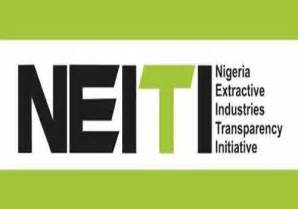Recently, stakeholders at a one day conference on Resolving Remedial Issues in the NEITI Industry Audit Reports, organised by the Nigeria Extractive Industries Transparency Initiative (NEITI) called out the Inter-Ministerial Task Team (IMTT) for being the weakest link in efforts to achieve remediation.
The IMTT, made up of key government agencies with NEITI as Secretariat and Chair, is designed and constituted by the Federal government to take decisions on remedial issues flagged in the various NEITI audits as part of the EITI implementation process.
It was set up following the need for government agencies to come together to identify gaps and reconcile discrepancies that prevented government from getting what it should be getting from extractives revenue, or gaps preventing the sector from operating optimally.
The IMTT consists of the Nigerian National Petroleum Corporation (NNPC), Department of Petroleum Resources (DPR), Central Bank of Nigeria (CBN), Office of the Accountant General of the Federation (OAGF), Office of the Auditor General of the Federation (OAGF), Revenue Mobilisation Allocation and Fiscal Commission (RMAFC), Federal Inland Revenue Service (FIRS), NEITI among others.
But not much has been achieved in resolving key remediation of issues thrown up in the nine cycles of oil and gas, as well as seven circles of solid minerals sectors audits by NEITI. This is due largely to the poor commitment towards the course by some key members of the IMTT. Most agencies either refuse to attend meetings, while those who do send a lower grade officer who lacks the authority to take important decisions or enforce remediation.
For Nigeria to reap the benefits of its membership of the global EITI, the IMTT needs to be alive to its responsibilities. Unless and until this happens Nigeria and Nigerians will continue to be the big losers.
We urge members of the group to show more commitment by having high grade officers with decision making authority attend the meetings.
Also, the federal government must show more will to ensure that Nigerians benefit optimally from extractive resources by putting mechanisms in place to strengthen the IMTT.
To make the IMTT more effective, we agree with the position of Mr Waziri Adio, Executive Secretary of NEITI, who proposed the inclusion of a high ranking government official, like the Vice President, with the power to compel action towards compliance with remedial issues on NEITI audits.
Adio while speaking in Abuja at the one day conference said NEITI has performed creditably well on two of its primary responsibilities, namely conducting the audit and disseminating information on audit reports, but remediation which is the most critical part of the mandate is sadly the weakest because enforcement powers is out of its jurisdiction.
There is also the need to review the legal framework establishing NEITI. As it stands, NEITI has no power to compel persons or covered entities to act in compliance with stipulated regulations, despite having the mandate to handle the remediation process.
We believe that without powers to sanction or take legal actions against covered entities for refusing to undertake remedial issues, NEITI’s push for remediation will be an impossible one. We are of the position that if NEITI has the mandate to handle remedial process, it should as well be given the powers to enforce.
By addressing remedial issues, gaps – whether structural or systematic – would be identified and bridged. This would further guarantee maximum benefits to government from extractive revenues and invariably translate to better living conditions for the citizenry.




























